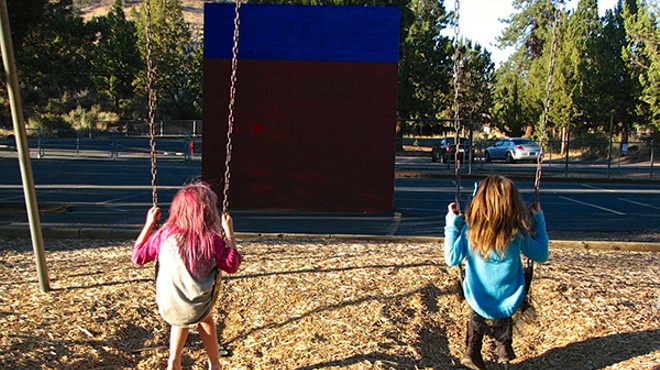Over the past four years, the so-called Common Core Curriculum has been implemented as a guideline for what public schools should teach each year—namely, by creating standards for what K-12 students should know in English and math. Adopted by 45 states, including Oregon, Common Core is becoming a national guideline for what and how to teach—and not without a few hiccups of controversy.
For the past 11 years, Joel Clements has been teaching high school juniors and seniors, classes like Writing 121, AP Literature, AP Language, and Narrative & Composition Studies, courses that place him squarely in the middle of the Common Core debate.
Source Weekly: What was your initial reaction to having to structure your curriculum around the Common Core?
Joel Clements: Once it was clear that this wasn't going to come and go as so many educational systems do, I was highly skeptical (well, okay, cynical) and figured that this would be just the latest set of vague, labyrinthine standards ("provide opportunities to improve students learning" or whatever) to apply to what I do.
SW: Has that opinion changed over the past couple years?
JC: I've attended a few seminars and trainings on it, and I have been really impressed at the thoughtfulness and clarity of its construction. I think it has a tremendous potential and is among the most well-constructed educational philosophies or systems I've encountered—at least on a large scale. It has its flaws, of course it does; but comparatively, it's very strong.
SW: What would you say is the greatest attribute of Common Core?
JC: There's a lot I like about it. The two greatest elements of it are, one, that its focus is on student learning, and that it refuses to tell you what to teach and how. That probably seems obvious—being student-focused—but you have to understand that most of these benchmarks and assessment are designed for the comfort of people on the outside of the system, trying to quantify and micro-manage the education of millions of students. Common Core was designed by educators with the focus on students and what they need. Secondly, it is put together with a real sense of education—a focus on critical thinking, evidence evaluation, skilled reading—across curriculum. The focus is on the education, not on the quantification—meaning the educational priorities are standardized, not the lessons, not the methods. I like, a lot, that there is no set curriculum—the designers of CCSS are adamant that there are no "official" Common Core lessons. It is left open to all different kinds of learning and focus.
SW: Its biggest shortcoming?
JC: Well, I can think of two big ones: One, its biggest shortcoming might be the same shortcoming any system is going to have: inclusion creates exclusion. As soon as you say, "These things included are important," no matter how true it is, you are—by default—saying, "These other things not included are less important." And when you say, "Students need to learn to level X," you're going to have the danger of suggesting that there is no need to learn beyond level X. And, two, this is a system designed to carefully build reading, writing, and thinking skills from kindergarten until their senior year, but we're going to start assessing students this year (using the Smarter Balance assessment), who haven't been trained their whole lives on it. This runs the risk of giving people all the ammunition they need to say, "See? Doesn't work." It takes years and years to see the ramifications to changes in education, which is why it's so easy to cut programs, and so hard to know what makes meaningful progress.
SW: How do you characterize students' reactions to Common Core? Or, do they recognize the change?
JC: Students are hit with so many assessments, tests, benchmarks, that they're pretty numb to it.
SW: Is Common Core limiting for your teaching style?
JC: It's caused some restructuring, certainly, but nothing severe; though, to be fair, most of my classes are pretty non-fiction writing and research intensive already; I know many teachers who've had to do some pretty serious restructuring.
























